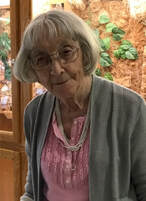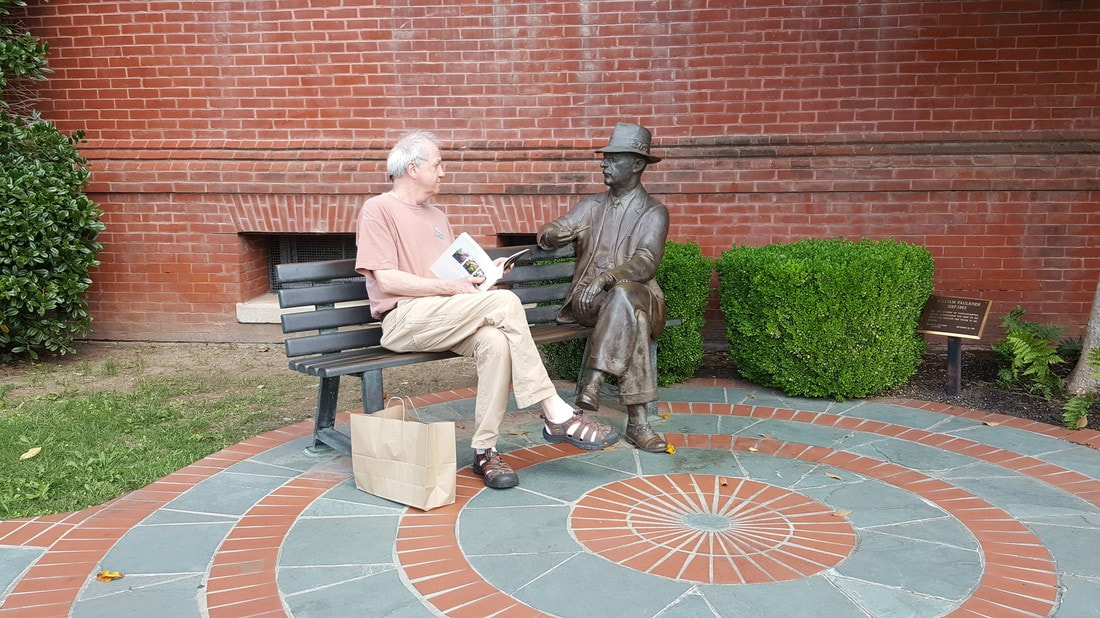 By Sen. Jon Bumstead, 34th Senate District Over 1 million Michigan workers have found themselves without a job as the coronavirus has taken our state’s economy by storm and devastated businesses in communities across the state. The state made businesses close their doors and made a promise to those who were forced out of work that they would receive benefits to take care of their families. Yet weeks passed by without people receiving their benefits or even as much as a phone call, letter or email notifying them of an issue or their status. For months, my office has been helping folks who are fed up with spending hours trying to get what was promised to them and have nowhere else to turn. The overwhelming traffic to Michigan’s Unemployment Insurance Agency (UIA) system should have come as no surprise after the governor’s various executive orders essentially shut down the state. However, the governor and agency director did nothing, even after weeks of documented issues, to assist with the influx of cases as more and more people lost their jobs. I understand the frustrations of those who have tried to navigate this system. I have voiced my own frustrations with the administration’s poor, untimely response to the overwhelming number of new claims that have been filed. I personally sent the governor a letter to express my frustration with automatically enrolling over 31,000 state employees into an unemployment system that was not meeting the needs of Michigan residents. Her plan prioritized state employees over everyone else. It furloughed these employees for one day per week, partially replaced their lost wages with state unemployment benefits and provided them with the additional $600 per week in federal pandemic unemployment assistance. While I appreciate the governor working to save the state money, it was a short-sighted plan that further burdened an already inept system. It was a serious lapse in judgment, and the people of Michigan deserve better. The agency has worked to institute additional fraud protections, streamlined their services, extended hours and made other reforms to speed up the system. I do want to commend the staff who have been working to help people get their benefits — but I think the state can and should be doing more. That is why I supported funding and authored language that would use federal relief funds to hire more temporary workers to assist with quickly getting claims processed and solved and getting people their money. We can certainly do better than a several-weeks-long approval process, and the measures I supported would help get us to that point. The coronavirus outbreak has affected families, schools, local governments and businesses across the country. In Michigan, businesses have closed their doors, people have lost their jobs and state revenues are down, but my colleagues and I remain committed to getting the state back on its feet. Michiganders have repeatedly shown their resilience in the face of adversity and we will continue facing this challenge head on. As always, feel free to contact my office at 517-373-1635 or at [email protected] if you have questions. If you are still having issues with the unemployment office, contact me with your full name; claim number or Letter ID number; phone number; address; and a brief description of the issue you are experiencing. My staff and I are happy to help. Sen. Jon Bumstead, R-Newaygo, represents the 34th state Senate District, which includes Muskegon, Newaygo and Oceana counties.
2 Comments
 From the Newaygo County School Superintendents The superintendents of the Newaygo County Regional Educational Services Area wish to collectively express appreciation for the efforts of our students, parents/guardians, teachers, support staff, administrators, and community for quickly adapting to the change to remote instruction and learning. We recognize this sudden shift has not been without its challenges, and we thank you for working to overcome them amidst the uncertainty of the COVID-19 pandemic. Throughout this pandemic, our primary concern has been the health and wellbeing of our students, staff, and communities. We hope you are well and will remain so, both physically and mentally. As we near the end of the 2019-2020 school year, we know you are wondering about the 2020-2021 school year. We too have read the stories about how other states and school districts are planning to conduct school next year. While we recognize the need to plan for a variety of possibilities, the reality is we simply don’t know what things will look like in August at this point in time. For this reason, we are actively planning possible scenarios for school next year. These include: 1. In-person, face-to-face instruction with proper precautions and safety measures; 2. Remote/distance learning using technology and other means; 3. A combination of in-person, face-to-face instruction, and remote/distance learning. To the extent that remote/distance learning continues to be part of the instructional delivery model, we anticipate a more robust program with student participation, engagement, and assessment expectations more closely resembling that of the traditional, in-person school. As a group, we are actively engaged in planning now and throughout the summer with additional efforts forthcoming within individual school districts. We have been and will continue to work with our District Health Department #10 as we rely heavily on their guidance and direction. We will also seek guidance from the State of Michigan and the Federal Government as they release guidelines for reopening schools. We are committed to maintaining transparency in our planning, while also exercising a degree of caution, knowing that any plans we decide on are subject to the actions of government officials. We will provide additional information to you as these plans are developed. In the interim, we ask for your patience and understanding. Finally, for those families with children who will be entering kindergarten next year, our districts are still accepting kindergarten registrations. We would encourage you to register your child as soon as possible as it assists us in our planning for next year. Please visit our websites to learn more about the registration process. Yours in Education, Vaughn White, Hesperia Community Schools Ken Haggart, Fremont Public Schools Brett Zuver, Grant Public Schools Dr. Peggy Mathis, Newaygo Public Schools Ed Canning, White Cloud Public Schools Dr. Lori Tubbergen Clark, Newaygo County RESA and Big Jackson Public Schools By Dr. Peg Mathis
To Whom It May Concern: We have responded to the pandemic. We have provided tens of thousands of breakfasts and lunches to students. We reached out and tried to help families acquire a device so their student(s) could do school work. We made thousands of copies of schoolwork and stuffed mailers as internet connectivity in our county is spotty. We have contacted students and parents with phone calls, emails, and text messages just to “check in.” We have listened. We provided school work to our students and emotional support to our families. We cried with students and mourned the loss of the last significant portion of our school year. We worried, prayed, and worried some more. We’ve sat back and watched while people argued about the value of social distancing and mask wearing when all we wanted was to see and teach our students. We’ve watched the disturbing things happening in our cities and wonder how this is affecting the outlook and attitude of our kids. We worry about our own mental and emotional health as well as that of our spouses and families. We have watched teenagers and youth go stir crazy because their sports, music and drama performances, and art shows were taken away. We have logged onto stores online and bought things with our own money and had it sent to students and families in need. We have fielded numerous questions about “what is going to happen next year,” because people want some reassurance that we’ll be there for them. We have heard the anguish of the members of the Class of 2020 who did not have the opportunity to experience the traditional end of their formal K-12 education. We continue to observe online learning companies doing a full-court press to recruit our kids to enroll in programs that statistically are proven to be ineffective. We watch as ideologues work to try to shift funding away from public schools to private “school corporations.” We have done all of this with a smile on our face and a positive attitude because that is what the public has come to expect of educators. We have done all of this with an incredible amount of uncertainty with our funding and future. Educators just want proper funding for our kids. In 2017, I wrote a blog post about how we could take the millions of dollars the State of Michigan spends on testing and reallocate that to schools so teachers can do what they know how to do best. While this is not the only answer, we have to get real and have serious conversations about how public schools have become political footballs. Stop with the excessive testing. Fund schools properly. Stop professing that we can just cut education services to the bone and that teachers should just “put up with it.” With our teacher numbers dwindling at an astounding pace, we can no longer fake a notion that teachers are not critical to the future of this nation. Let’s stop pretending that online learning is a proper substitute for school, that teachers are supposed to just tolerate contempt from policy-makers, and that corporations are not getting rich off the testing mania and privatization of schooling. I know what some are thinking: we are in pandemic, the economy is in the tank, and there is no money. But yet… school leaders have to figure out a budget before June 30 when we have no idea what the funding will be from the state. School leaders have to work to make this happen. It is time that our policy-makers on the left and right at the state and federal level do the same. To quote Nelson Mandela, “There can be no keener revelation of a society’s soul than the way in which it treats its children.” With Pride and Respect, Dr. Peg Mathis  Jeanette Johnson Jeanette Johnson By Fred Bultman The June 10 obituary for 98-year-old Jeanette Johnson included just a short sentence about “the impact of this little woman’s life … upon her community.” I personally did not have the privilege of enjoying that impact until Mrs Johnson’s 10th decade – and here’s the story: When I retired to my ancestral county of Newaygo back in 2013, I soon found myself asked to join the rotation of volunteers who lead the Sunday afternoon Christian worship in the Activities Room of the Medical Care Facility east of Fremont. There was a particular need for a volunteer available on holiday weekends, so that became my regular assignment. It was also difficult for the volunteer schedulers to find pianists available for those holiday weekends. And so it happened, on the Christmas weekend of 2015, that I was facing the possibility of depending on my own aging and quivering vocal cords to lead the carol singing without musical instrument support. A staff person, recognizing the gravity of the crisis, soon volunteered to try to find MCF resident Mrs Johnson to bail us out. The search was successful, and that’s when I first met nonagenarian Jeanette Johnson. She did need assistance to get around, and to get situated on the piano bench. But when I attempted to give her a list of song numbers to choose from, Mrs Johnson replied that she probably knew them all, and anyway her eyesight was no longer much help for reading music from the songbook. “Just tell me the song, and how many verses, and I’ll do my best.” Her best was amazing. There was unexpected energy from this “little woman” in her playing the exuberant songs; there was reverential and soothing comfort in the quieter hymns; and throughout, I also noticed that her piano playing seemed always to be in direct dialogue with her fellow residents. There was another constant I could expect in talking with Mrs Johnson after worship: she remained absolutely insistent that she and I were distant relatives. Although I have found over the past 7 years that I do indeed have Newaygo County relatives I had never known, Jeanette Johnson and I were never actually able to come up with such a connection. The last time Mrs Johnson’s skills came to my rescue was on Independence Day weekend in 2018. By then, she was sometimes coming to the Activities Room in a wheelchair, and always wearing dark glasses. After the time of hymn-singing, I brought my short message, which I had planned to end with the story of how a Pennsylvania minister’s daughter had come to write the lyrics of a certain song. About halfway through my story, I slowly became aware that from the piano behind me were coming the ultra-pianissimo notes of “O Beautiful for Spacious Skies”. Mrs Johnson had somehow recognized where my story was leading, and had quietly and without assistance made her way from her chair to the piano bench, and begun her soft supportive rendition of “America the Beautiful”. The volume of her playing slowly grew with just the right timing to coordinate with the end of my story-telling. When that happened, I was wise enough to seize the moment to have the residents move directly into the singing of that patriotic hymn. The energy from both pianist and mostly elderly singers was truly inspiring. Afterwards, some residents’ family members who had also been present complimented me on how well the pianist and I had planned and rehearsed “that thing with ‘America the Beautiful’.” I’m not sure I was successful in convincing them that all the credit should go to nonagenarian Jeanette Johnson. N3- Recently there has been a resurgence of posts on social media regarding ‘lawn jockeys’ that portray them as having been a vital part of the Underground Railroad. The following is from an Q&A article done by Franklin Hughes for the Jim Crow Museum of Racial Memorabilia and we were able to receive permission to repost it in hopes of dispelling some of the myths surrounding the origin. We followed this up with asking for some feedback on the posts currently circulating about the Aunt Jemima branding. We were fortunate to receive an statement from the Museum Educator & Collections Database Administrator, Cyndi Tiedt about the Aunt Jemima character which follows the lawn jockey piece. Q: Hi, I always viewed lawn jockeys as a symbol of racism. Recently, I saw a post on social media that tried to justify their use by saying they were actually used on the Underground Railroad and should be viewed from that lens. I thought that was odd; there is a little information on the Internet that supports that view. I was wondering if you could help clarify this. I still see it as a racist object.~Tim J. A: Thanks for the question. We get this question quite often in the museum when people explore our “Racism in the Lawn” section. I refer you to something that Dr. Pilgrim has argued. “When it comes to questions about something that may or may not have happened during enslavement in the United States, it likely did occur; however, that does not mean it was a common occurrence.” Keep in mind that enslavement lasted for two centuries. During that long period, it is possible that someone used the lawn jockey in the way you described; however, there is no evidence that this practice was commonplace. The story goes that safe houses used beacons placed on lawn jockeys to help guide and signal escaping slaves on the Underground Railroad. “Green ribbons were tied to the arms of the statue to indicate safety; red ribbons meant to keep going” (The Province, 1988). If the escapee saw certain signals, they knew where safe passages were and where the dangers were. The figure of the lawn jockey was apparently known by escaping slaves to be that of Jocko Graves who was “a symbol of freedom during the era of the Underground Railroad” (Philadelphia Inquirer, 1981). The legend holds that conductors of the Underground Railroad used these lawn jockeys, as well as other items, to help guide people toward freedom. This story seems to have first been written in the mid-1970s by Charles L. Blockson, an African American historian. Blockson and a few others began teaching this narrative as a part of African American history. In some ways, this was a way to reframe or reclaim a racist object but mostly, it was taught as an actual occurrence. However, there is very little, if any, primary source material for the claim that lawn jockeys were used as signaling devices for escaping slaves on the Underground Railroad. There is another legend about the lawn jockey that is widely distributed and that is the story of the Faithful Groomsman, Jocko Graves. The story goes that Jocko Graves was a young African American boy who served George Washington during the Revolutionary War period. Washington planned to cross the Delaware River into Trenton, New Jersey, for a surprise attack on British troops. Washington deemed the trek too dangerous for the young Jocko, so he instructed him to stay behind on the Pennsylvania side of the river. Graves was tasked to tend to the horses and keep a light lit on the bank for Washington and his men to guide them back during the night. Graves did as he was instructed but froze to death. General Washington was so moved by the dedication of the boy that he had a statue cast of Graves holding the lantern. The statue was called “The Faithful Groomsman,” and was installed at Washington’s Mount Vernon estate. In 1963, the story was told in a 32-page children's book by Earl Kroger Sr., Jocko: A Legend of the American Revolution. In a newspaper article from 1970, Kroger presented the story as a “symbol of racial pride,” that Jocko, and his father Tom, were two of “60-or so negroes who volunteered for the continental army” and served with Washington. Kroger credits his first hearing of the story to a schoolteacher he had as a boy in Reidsville, North Carolina (Austin American-Statesman, 1970). In 1972, Thomas William Halligan wrote a manuscript about the story in "A Horse for the General: The Story of Jocko Graves.” It is unknown where Halligan first heard the story or if he believed the story to be historically accurate. Likewise, in the mid-1990s, a "local authority on black history" Lee Carter, was highlighted in newspapers recounting the heroic story of the Faithful Groomsman lawn jockey. Carter once saw the lawn jockey as a derogatory object “but now he sees the statue as a tribute to a brave boy” (Philadelphia Inquirer, 1993). Contrarily, black memorabilia writer Kenneth W. Goings also wrote about the Jocko Graves story in Mammy and Uncle Mose, in 1994, however, Goings refers to the story as being purely apocryphal. There is little to no evidence from primary sources to substantiate the story of Jocko Graves. At the Jim Crow Museum, we often bring up these narratives in order to spark discussion. What if the stories about lawn jockeys being used as signaling devices for the Underground Railroad or the story about Jocko Graves are not true? Is there still some value in trying to reclaim and redefine negative imagery into positive messages? Some say yes, and this allows for discussion from multiple standpoints and can lead to a deeper understanding. African American history is full of negative stories; I can understand why people like the more positive stories about the lawn jockeys. However, it is imperative that we acknowledge that these stories may not be true, and truth matters. In my opinion, a powerful narrative is the rising and achieving of African Americans despite hundreds of years of resistance in this culture. To operate in a society that is slanted against you, in imagery and all other ways that matter, and still one rises, is a testament to heroic intestinal fortitude. -Franklin Hughes As for Aunt Jemima? This was our reply from Ms. Cyndi Tiedt: The mammy caricature, (and the Aunt Jemima character holds many of the same characteristics), has its origins during enslavement in the United States. The mammy perpetuates this idea of servitude, faithfulness, of being loyal to the white family. The mammy caricature and Aunt Jemima brand specifically has its origin in the 1880s when Charles Rutt developed a self-rising flour mix and called it Aunt Jemima’s recipe. He took it from a minstrel show that he saw. The minstrel characters were performing a song called “Old Aunt Jemima.” He chose this image and name because, he believed, the image of a mammy would help sell the product. The first real-life portrayal of Aunt Jemima was Nancy Green. Green was born as an enslaved person in Kentucky in 1834. She was brought onto the brand and her role was to impersonate a mammy. When you think about that and all the mammy represents you are having a Black woman portraying a stereotype about Black women. Her role was to sing songs and cook pancakes and tell romanticized stories about the old south. Her stories were presenting her character, the mammy Aunt Jemima, as this happy slave.” Thank you Ms.Tiedt In honor of Juneteenth we would like to encourage readers to take in the Jim Crow Museum of Racist Memorabilia at Ferris State University. Of course it is presently closed due to COVID-19, but this link will tell you a bit about the museum and provide updates on when they will once again be open and providing some enlightenment regarding our collective history. https://www.ferris.edu/jimcrow/ By Ken DeLaat
I gotta tell you I really miss baseball. Particularly the Tigers. While a follower of other sports, to tell you the truth I can take or leave pro hoops if the Pistons aren’t contenders (meaning I pay attention about every other decade) and hockey has never translated to TV for me. Football is always fun but I don’t really miss it a lot. Golf is an activity not a sport and pro soccer continues to be the next big sport in the US and will seemingly always be. But baseball? Man, I really miss the game. I’ve caught a few of the South Korean league games that come on at 5:30 am most days and it fulfills a need as well as proving to be pretty entertaining what with cheerleaders and the fans and vendors made out of cardboard or something as well as the announcers banter from a booth here in the states. I haven’t really picked a team to root for nor do I really care who wins, but just seeing the game played gives a tickle to the jones I feel as summer begins in earnest. But I profoundly miss the Tigers. I’ve tucked it away with a little anticipation for what will be a short season run to the playoffs which might prove kind of fun if the players and owners can agree. But I’m not counting on anything for now. This past week I saw that Claudell Washington, a ballplayer of some note in the 70’s and 80’s, had passed and it brought back one of my favorite baseball memories. It was 1976 and the enigmatic pitcher Mark Fidrych known simply as ‘The Bird’ was making another dreadful Tiger season bearable by excelling on the mound. His antics on the field, his down to earth presence and ability to simply win games endeared him to Tiger fans and he packed the stands while other games played in the old barn at Michigan and Trumbull that year usually resulted in a sea of empty seats. Washington was playing for Oakland in ‘76 and they came to town to face the Tigers. The A’s were in a pennant race after a string of 5 playoff appearances including a trio of World Championships. The Tigers? They were trying to avoid the cellar. The Bird was tossing a gem against the visitors. As he mowed through the lineup he faced Washington and with an 0-2 count he brushed him off the plate with a hard inside pitch. Washington dropped his bat and took a step toward the mound. That’s when 50,000-plus people screamed their intent to do him great bodily harm should he dare go after their golden boy. Washington looked around before wisely holding up a hand and picking up his bat. For the next decade and a half every time he came to bat in Detroit he was booed heavily. The Bird was soon out of the game having been pushed into throwing way too many innings and way too many games for that young arm. But that made no difference when it came to Claudell. He moved on to the White Sox. Played with Texas, even escaped for several years to the National League where he could avoid the trips to Detroit but the Tiger fans are baseball purists with memories like elephants and they never forgot. They booed him from that day in ‘76 until his final years with the Yankees and Angels in a career that ended in 1990. That’s part of why I love the game. Knowledgeable, loyal and fun fans with always a nod to legend, lore and history. So now Claudell, like Fidrych before him, has passed on. But the baseball memories linger as they do among aficionados of the game. Mention The Bird to a Tiger fan my age and it will bring a smile of recognition. And most will also remember Washington. But likely not with a smile. “Whoever wants to know the heart and mind of America had better learn baseball.”-Jacques Barzun To the Editor: I have such a myriad of emotions from watching coverage of the death of George Floyd and the protests that continue two weeks and counting. Heartbreak and horror from watching yet another black man being treated in the most inhumane way possible. Disgust for the officers who murdered and participated in the murder of George Floyd. Anger at the department that allowed an officer, entrusted to serve and protect, to remain in his job after 17 known misconduct complaints against him, and yet he was responsible for training new officers. My disdain for those who try to vilify the peaceful protesters by repeating social media lies to perpetuate fear. Finally, my deep frustration with those in our local community who make comments like “You know, George Floyd had drugs in his system,” or “Why are they rioting,” or “All lives matter.” These comments reveal an ignorance, racism, and lack of compassion that is embedded in society and remains present in our community. At the same time, I am uplifted, by seeing crowds of young, diverse, people who are demanding that we build a just, equitable future America that they want to live in. “All lives matter” may sound like we are all in this together. However it redirects the focus from those who need it the most: our black brothers and sisters. In fact, Black Lives Matter is a movement that addresses the racial bias, systemic racism, and police brutality suffered by black and brown people. It speaks to the outrage of black people being twice as likely to be killed while unarmed by a white person. BLM’s guiding principles include eradicating white supremacy, and intervening in the systemic violence inflicted on communities of color. Systemic violence includes underfunded schools and disproportionately high rates of punishishment for black and brown children compared to white children in the same schools. Blacks make up 18% of the population yet they represent 40% of incarcerated Americans. The truth is that the black experience in America is much different from that of non-black Americans. For white people, the first step to combating racism is to listen and be open to understanding our own inherent biases. Educate ourselves about what it means to be discriminated against and speak up even when we think we are alone. We need to be an ally for our black sisters and brothers, that means having those hard conversations about black lives and how all of us play a part in systemic oppression. It is time for a change. For those of you who inexplicably still display it, it’s time to burn your racist Confederate flag. It is a symbol of losers and has no place of prominence in Michigan, which lost 13,000 souls fighting for the Union. It screams nothing more sophisticated than “You’re not the boss of me!” It is time to remove the “blue lives matter” stickers from our publicly-funded police cars. While it may seem like a benign show of support and solidarity for our law enforcement professionals, it was also created as a negative response to Black Lives Matter. It is one more form of covert racism, and sends a troubling message to people of color in our community that maybe the police are not there to serve and protect THEM. (Arguably, it is also in violation of U.S. Flag Code, especially when prominently displayed on taxpayer-funded vehicles.) While I don’t advocate the extreme calls to defund the police, it is time to reallocate some funding, starting with the post-9/11, post-War on Drugs, pork of military surplus vehicles and tactical gear designed to instigate violence, not stop it. Police militarization, traditionally reserved for exceptional measures and extreme threats, has become normalized. Militarization of police is ineffective in fighting crime and is in inefficient allocation of finite community resources. Our police officers shouldn’t be soldiers nor should they be responsible for all of society’s failings because services have been cut. Police have been made to fill in the gaps for lack of mental health, substance abuse treatment, domestic violence prevention, and health care funding. Newaygo County is not a racially diverse area. We don't see the need to confront these issues every day. The current difficult conversations and confrontations might seem like faraway "big city stuff." But we don't live in a bubble. We are not surrounded by a wall that separates "us" from "them." Our local communities and some of our local families have historical ties to the KKK and racism is evident on the flagpoles in our yards and on the bumpers of our trucks. We are not sheltered from the current storm. We are a small thread in an increasingly colorful tapestry that is America. Just because the problems that have been brought to light seem remote now, does not mean that our local communities have no obligation to move forward. We can be honest with ourselves and each other at this time of national reckoning and end the legacy of racism that we have inherited. If we do, we SHALL overcome the original sins of America right here in Newaygo County. Michelle O'Leary  A couple years ago we posted a column concerning social media and offered a recommendation for a reply to some of the vitriolic verse that makes its way onto the various sites. It was suggested to type TDH...short for This Doesn’t Help... referencing how most of these serve no purpose (or possess no substance) other than to divide. The first comment received came from someone who posted ‘TDH’. I loved that. It was simple yet clever. It spun some humor without being unkind and put in perspective our heavy handed suggestion of a cure-all for facebook churlishness. Unfortunately so many posts often fall short of being credible, much less clever or creative. In our most humble of all opinions here are a few sure signs the poster is or has become absent of any dialectical ingenuity. ‘Let that sink in’ -As if they’ve just expressed an opinion that by all rights should shake your very sense of reality. This attempt to hit the target of intriguing irony generally misses...by a lot. ‘Bet you won’t share this’- Feels like some kind of playground dare akin to the infamous double dog dare that led to a frozen tongue on a flagpole (Best Christmas movie ever!). Drinking the Kool Aid- Crashingly boring. There is nothing about using the phrase that requires even the least bit of thoughtfulness or imagination and it’s way past time to put this one to bed. It’s weak, tired and most who use it don’t even get the reference (See Jim Jones and the Jonestown Massacre).To put this phrase in perspective, it was old when I wasn’t. Sheep-While granted, it is indeed a universal insult since those using it are steadfast in their belief that they know the truth and all others are being helplessly duped, it lacks imagination. Try lemmings or even geese. Both are renowned followers. ‘Wake Up People’- As if the poster fancies him or herself to be a modern day Paul Revere. This presumed ‘call to action’ implies a superior base of knowledge that more than likely just isn’t there. Using this seems to indicate the poster has some leadership qualities and truthfully, anyone who needs to pull this one out?
Doesn’t. Beginning a sentence with “Fact:” because as we all know the days of Jack Webb (“just the facts ma’am”) are long gone since ‘alternate facts’ and a distrust of sources that don’t fit our mindset make facts kind of irrelevant, particularly in the venues of social media. ‘Expert’ opinions. Is there a degree in expertise? Experts are those who express opinions we agree with. Other popular maneuvers: ‘Whatever, Karen’, ‘Bye Felicia’, etc- These might have been trendy awhile back but now like so many overused responses it's just meh. Sharing a meme that is mean spirited and passing along info because you want it to be true with no regard for whether or not it is. This petty and pugnacious political pandering reveals a poster with significant flexibility when it comes to the truth. And last but certainly least… Name calling. In a different time place and career, Rita, a co-facilitator and colleague of mine, responded to a member of our therapy group who told of having been called a bitch during an argument with her significant other. “While that might have hurt, in my experience nobody hauls out the bitch word when they’re winning an argument,” she said. “ It’s only when they’re losing and backed into a corner that ‘Bitch’ becomes their only defense. It’s a sign of weakness.” Like all name calling. All. And the more offensive the intent? The smaller the person delivering it. There are but a few, but you get the idea. These are the fodder of bullies, close minded zealots, pot stirring conspiracy theorists, and the ‘angry at my life and wanting someone to blame’ bozos and using them seems to reveal a particular level of shallowness. But hey, like I said, this is only one opinion. And it’s likely that as we were once reminded in our own words… TDH. -Ken DeLaat “If you are on social media, and you are not learning, not laughing, not being inspired or not networking, then you are using it wrong.”- Germany Kent  Bumstead supports bill to improve law enforcement training LANSING, Mich. — State Sen. Jon Bumstead on Thursday voted for legislation to ensure all law enforcement officers receive training to help improve their community relationships and protect all Michigan families from excessive force. “The death of George Floyd is a tragedy, and the officers responsible should be held accountable for their actions,” said Bumstead, R-Newaygo. “Americans are justifiably upset, and I fully support everyone’s First Amendment right to protest and peacefully assemble. There have been many recent incidents of Michiganders peacefully demonstrating to make their voices heard and I commend those who have participated in these demonstrations.” Senate Bill 945 would require that all law enforcement officers complete training on implicit bias, procedural justice, and de-escalation techniques and receive education on mental health resources. It also would require ongoing annual continuing education for officers. Law enforcement agencies would be required to adopt a policy stating the officers employed have an affirmative duty to use de-escalation techniques whenever possible. The policy would need to be adopted by Jan. 1, 2022. The Michigan Commission on Law Enforcement Standards (MCOLES) would be tasked with creating a model policy for agencies to adopt. “I stand with the Michigan State Police, Police Officers Association of Michigan, and other law enforcement organizations in supporting the reforms in Senate Bill 945,” Bumstead said. “I hope to see quick action taken in the House as the bill makes its way to the governor’s desk.” SB 945 now heads to the House of Representatives for consideration. An interview with Carla Roberts
Fremont Area Community Foundation is perhaps most well-known for its grantmaking programs and supporting local nonprofit organizations. Supporting economic development, small business growth, and entrepreneurship has also been a longstanding focus for the organization but often looks different from traditional grantmaking due to a variety of restrictions that all community foundations must navigate. With all sectors feeling the impact of COVID-19, Carla Roberts, president and CEO, offered some insight into the Community Foundation’s pandemic response and its continuing commitment to local businesses. How does supporting local businesses fit within the mission of the Community Foundation? We believe small businesses are the backbone of our local economy. We love our business community, buy local whenever we can, and we encourage our grantees to do the same. This support for small business and entrepreneurs goes back to our earliest days. Several people have told us over the years that they got their start because Bessie Slautterback, the organization’s first executive, gave them a $5,000 loan to start a business. Of course, we live in different times now, with significant IRS restrictions on how a community foundation can engage with local businesses. We can only award grants to organizations with a charitable status, such as 501c3 nonprofit organizations. That is why we work through intermediaries—such as Northern Initiatives and The Right Place—that have a charitable status and mission to support local business. The Right Place is a service organization and vital partner to support manufacturing, agricultural businesses, tourism, and entrepreneurship in Newaygo County. Northern Initiatives is a community development financial institution (CDFI) with the capability to provide financial services to businesses that do not qualify for conventional loans. In 2015, we established a $250,000 loan pool with Northern Initiatives to ensure that local businesses have the working capital to build and sustain their businesses. The COVID-19 crisis has obviously had a large impact on our entire region, including local businesses. How did the Community Foundation initially respond to the need and what were the considerations for supporting the business community? When the crisis hit, we were inundated by the needs from all sectors. We had to quickly deploy our staff in new ways, setting most up to work remotely. Within one week we had created the Community Response Fund and a new quick-response grant application and process to deploy grants from the fund. Of necessity, our first priority was to distribute emergency relief funds for food, shelter, and basic needs as demand quickly escalated alongside job losses. At the same time, we knew small businesses and entrepreneurs were hurting and began to explore possibilities for supporting them in new ways. We encouraged nonprofits and businesses to take advantage of state and federal programs and we set up a technical assistance team of local experts to provide guidance to navigate those resources. The team included Dan Wheat to work with nonprofits, Don Farmer to work with businesses of 50 employees or fewer, and Julie Burrell to work with larger businesses. Those resources are still in place for anyone who needs assistance. More information can be found at bit.ly/FACF-business. We also began to develop a strategy to help small businesses by leveraging Community Foundation assets to support low-interest loans. It took some time to find a partner—as many local banking partners are inundated with processing federal programs—but we are very close to announcing a program to assist local businesses as we enter our county’s intermediate recovery phase. Why wasn’t the Community Foundation able to award immediate needs grants or use other parts of its endowment to directly support small businesses? The primary reason is that it is difficult to establish a “charitable class” which is required by the IRS. But even without those restrictions, we would not have had the available dollars in our grantmaking budget. While the Community Foundation and its affiliates award nearly $9 million in grants each year, our trustees only direct about $5 million of that amount. The other grant funds are designated for specific areas or are otherwise restricted in their use. We estimated that the need in the small business community would likely reach $2-3 million. Since we had already deferred significant resources to immediate basic needs such as food assistance, there were simply not sufficient grant funds to address the emerging needs anticipated during the recovery period for both the nonprofit and for-profit sectors. Making grants to small businesses from our endowed assets would not only conflict with IRS funding restrictions but would also endanger the long-term power of our endowment. Our trustees have the responsibility to ensure that the endowment remains intact and keeps pace with inflation. To ensure this, we have a spending policy to limit the dollar amounts expended on an annual basis for both grants and operations. Along with stock market fluctuations, tapping into the endowment could impact and reduce our grantmaking abilities for years to come. Our community will need us well beyond the immediate crisis and we need to ensure the Community Foundation is viable for the recovery period and beyond. Endowment ensures we will be here for the community for good, forever. A great example of the power of endowment is the Harry Williams Fund that was started during the Great Depression. That $5,000 fund has grown to over $9 million in assets and has given out more than $9 million over the life of the fund. Those were troubled times and it would have been easy to spend the funds for immediate needs, but the donor chose to endow them to provide for the present and the future. What are your next steps for supporting the business community? We are putting in place some financial programs through intermediaries that will offer low-interest loans on very favorable terms. In essence, we are standing behind the small business community and using the Community Foundation’s assets as a kind of collective bargaining chip to leverage the support we believe local businesses will need—not just for the intermediate recovery period but probably for much longer. We will be announcing details about this program as soon as they are finalized. Stay tuned! |
Letter to the Editor PolicyNear North Now welcomes original letters from readers on current topics of general interest. Simply fill out the form below. Letters submissions are limited to 300 words. Archives
July 2024
Categories |





 RSS Feed
RSS Feed